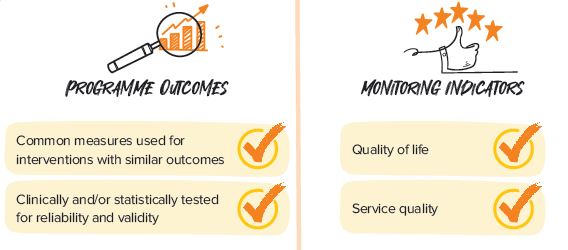
Measuring Impact
Moving Towards A Common Language To Measure And Articulate Impact
Launched in September 2021, the Sector Evaluation Framework
(SEF) aims to introduce consistency in how programme outcomes are
measured across the sector. This is done through using consistent
and validated outcome measures for all programmes with the same
objective.
As a result, the SEF provides a common language for different stakeholders in the sector to measure programme outcomes, track the progress of service users and articulate impact. This paves the way for more clarity, accountability and ultimately, better outcomes for service users.
The SEF is being implemented across the sector.
The SEF consists of 2 components:

Under the SEF, NCSS recommends common outcome metrics for interventions with similar outcomes. These measures are chosen for their succinctness and must be clinically and/or statistically assessed for reliability and validity.
An example is using ACT SG to measure programmes that seek to improve positive youth development competencies.
Quality of Life
Improving the quality of life of our service users is the overarching goal of our sector. Hence, alongside programme outcomes, we want to measure the quality of life of our service users. This enables us to assess the well-being needs of service users on a broad, holistic level.
Service Quality
Referencing the World Health Organisation’s Quality of Care Scale, the Service Quality questions determine whether the service provided met the service users’ needs.
*The SEF repository of metrics are reviewed periodically, please contact us at research@ncss.gov.sg if you are interested to find out more about the latest metrics being used.
Find out more about the impact of your contributions, an overview of the sector landscape or view the full FY2022 Impact Report.
